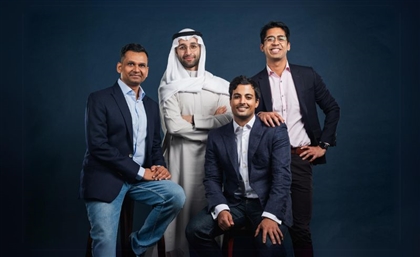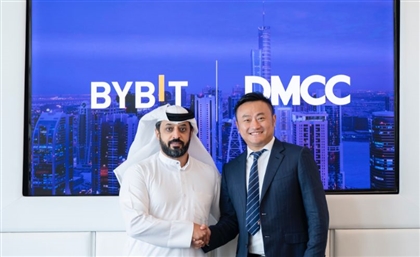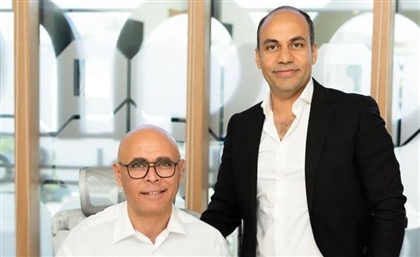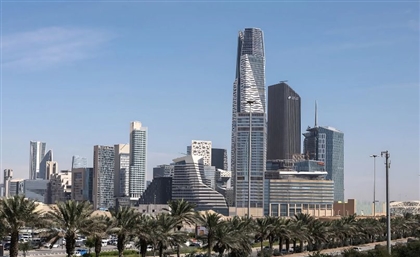Nurturing the Foodtech Sector in Saudi Arabia
With ample funding and innovation, foodtech startups are revolutionising the way people interact with food in the Kingdom.

It comes as no surprise that Saudi Arabia is emerging as a leading startup destination in the Middle East. In 2023, the nation secured more venture capital investments than its regional competitors - the UAE and Egypt - for the first time, boosting significant startup growth in the Kingdom.
Startups in Saudi Arabia raised a total of $1.4 billion, a 33% increase from 2022, according to data platform Magnitt. And one of the sectors that is most impacted by this remarkable growth is foodtech.
With ample funding and innovation, foodtech startups are revolutionising the way people interact with food in the Kingdom. From streamlining restaurant operations to developing cloud kitchens, minimising food waste, and creating quick service restaurants (QSR), they are disrupting and reshaping the food industry.
It is estimated that Saudi foodtech startups amassed a total of $555 million in funding from 2019 to 2023, according to AstroLabs, a business expansion platform in the region. Some of the most funded startups include grocer delivery platform Nana, raising a total of $212.2 million; restaurant management platform Foodics, attracting $198 million to date; and food delivery startup Jahez, receiving $36.5 million so far.
TECH-DRIVEN SOLUTIONS
One of the reasons for the rapid expansion of the foodtech sector is the significant opportunity for tech-driven solutions in the food and beverage services (F&B) industry. Foodics, one of the leading foodtech startups in the country and across the region, capitalised on this opportunity for disruption at a time when the market was still considered nascent.
“Foodics was founded in 2014, a time when the F&B sector in Saudi Arabia and the Middle East was ripe for digital transformation,” Ahmad AlZaini, CEO of Foodics, tells StartupScene. “We saw a significant gap in the market - restaurant operations were largely manual and inefficient. Our vision was to create an all-in-one tech solution to streamline these operations, improve service quality and help businesses thrive.”
But while the startup’s vision was clear, it was met with challenges since many restaurants were reluctant to adopt tech solutions to streamline their operations. Most relied on documenting their purchases and inventory on either excel documents or even paper, since the process was largely manual 10 years ago.
However, Foodics was able to get users onboard by demonstrating the benefits of using their tech solutions. And while change didn’t happen overnight, users did eventually embrace solutions over the years. “We demonstrated the tangible benefits of our solutions through pilot programs and case studies,” he says. “As we celebrate our 10th year, these challenges have shaped our resilience and adaptability.”
To date, Foodics is among the most funded foodtech startups in Saudi Arabia, and has over 10,000 clients across the region. It is now looking to incorporate advanced technologies like AI and machine learning to expand its product offering in the next few years.
MARKET TRENDS
As many entrepreneurs know, simply providing tech solutions is not enough to succeed in any sector. Startups must also adapt to shifting market trends to stay relevant and meet customer expectations.
For Rabah Habiss and Abdulaziz Al Saud, founders of Barakah, a foodtech startup tackling food waste in Saudi Arabia, focusing on sustainability was no longer a nice-to-have, but a necessity in keeping up with the growth of the F&B sector in the country. According to the Saudi Arabian General Authority for Investment (SAGIA), it is forecasted that spending on food service will grow 6% annually in the next five years, far ahead of the overall population growth of 1.8%.
“For us as Barakah, the growth in that sector means for us by default more food waste, just given the nature of F&B operations and the high margins within the sector,” says Abdulaziz Al Saud, Co-Founder of Barakah. “So, we definitely see a lot of value that we can continue adding to the sector as it grows and as new retailers come online.”
Barakah enables bakeries, groceries, and restaurants to sell their surplus through the app, providing a cost-effective and convenient way to repurpose food for both retailers and customers. “It’s really a win-win-win,” adds Al Saud. “Retailers become operationally more efficient, they generate additional revenue, acquire new customers, and then these new customers get unbeatable deals from their favourite retailers, whether it’s a restaurant, a grocery or a bakery.”
NEW ROOM FOR GROWTH
The foodtech sector is predicted to continue growing over the years, particularly as users embrace digital solutions and are quick to adapt to new, changing trends.
“The post-pandemic era has accelerated the adoption of digital solutions, and there remains significant room for growth,” says AlZaini.
He adds that new segments like cloud kitchens and QSR are continuing to expand, presenting further opportunities for foodtech startups. Tools like digital payments and AI driven analytics are also being adopted by users to increase efficiency and enhance customer experience.
The key, however, is to create solutions that are relevant for the F&B sector. As Marwan Abu Sakha, Co-Founder of Kitchefy, explains in his recent LinkedIn post: “Any new product in the industry today needs to have an evident ROI and clear elaboration on how it will make the restaurant owner more money or save more than what they will pay to subscribe to that service. Other than that, it will be tough to build a sustainable business with clear projectors to profitability.”
Yet with the F&B industry in Saudi Arabia projected to reach $27 billion by 2029, according to Mordor Intelligence, the industry remains ripe for growth and disruption. This is also inline with the Saudi Vision 2030 to support the entertainment industry, as part of its strategy to diversify the economy away from oil. “The FoodTech sector in Saudi Arabia is set for substantial growth, supported by the government's Vision 2030,” says AlZaini. “There is a significant opportunity for tech-driven solutions in the F&B industry. The sector will increasingly integrate technology to enhance efficiency, customer experience, and profitability.”
- Previous Article Siin Experience: The Trailblazers Transforming Syria’s Nightlife Scene
- Next Article Travel Across History on Egypt's Most Iconic Bridges
Related Articles
Trending This Week
SceneNow TV
Events Calendar




















